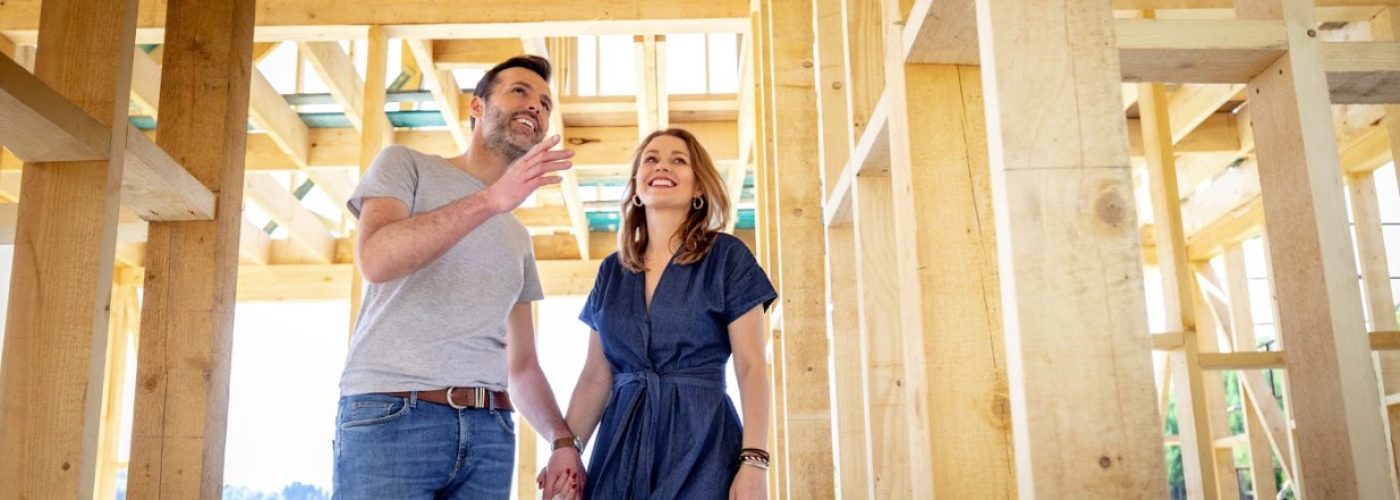Home construction loans are becoming increasingly popular in the United States as more and more people choose to build their dream homes rather than buy pre-existing ones. However, securing a home construction loan is not as simple as filling out an application and waiting for approval. One of the key factors that lenders consider is your credit score, which can significantly impact the loan approval process and the terms of the loan itself.
According to Forbes, the minimum credit score requirement for approved home construction loans in the US is around 680, while some lenders require a score of 720 or higher. Those with lower credit scores may have difficulty getting a loan approved or face higher interest rates. On the other hand, those with a high credit score are more likely to receive favorable loan terms and lower interest rates, saving them money in the long run.
This blog will delve into the vital role credit scores play in home construction loans and provide tips for improving your credit score to increase your chances of getting a loan with favorable terms. Whether you’re a first-time home builder or an experienced construction loan borrower, the information in this blog will be valuable for making informed decisions about financing your home construction project.
What Is A Home Construction Loan?
A home construction loan is a type of loan used to finance the construction of a new home. It is specifically designed to cover the costs associated with the building process, such as:
- The purchase of the land
- The construction materials and labor
- Taking permits
- Any other construction-related expenses
This loan differs from a traditional mortgage in that it is only disbursed in stages as the home’s construction progresses rather than fully paid upfront.
Here are the four types of home construction loans:
- Construction-To-Permanent Loan: This loan combines a construction loan and a traditional mortgage. It covers the costs of building and financing the home once construction is complete. Once the house is built and inspected, the loan will automatically convert into a permanent mortgage with a fixed term and interest rate.
- Construction-Only Loan: This loan only covers the construction costs and must be paid off in full once complete. After that, the borrower must secure a separate mortgage to finance the permanent financing of the home.
- Owner-Builder Loan: Owner-builder loans are designed for individuals who plan to build their own homes. It provides the funds needed for construction, but the borrower acts as the general contractor and is responsible for managing the building process.
- Renovation Loan: A renovation loan is used to finance renovations and improvements to an existing home. It can also fund the construction of additions to an existing home. This type of loan is typically offered as a traditional mortgage and is not specific to constructing a new home.
A home construction loan is an important financing option for anyone looking to build a new home. With an understanding of the different types of home construction loans and their features, you can choose the best option for your specific needs and financial situation.
The Role Of Credit Score In Home Construction Loans
Lenders use credit scores to assess the risk associated with lending money to an individual. A credit score takes into account a person’s past credit behavior, payment history, and the amount of debt they currently have. The higher a person’s credit score, the lower the risk of defaulting on their loan, which is why lenders prefer lending money to individuals with high credit scores.
- How Credit Score Affects Loan Approval And Interest Rates
A high credit score can increase the chances of loan approval and result in better loan terms, including lower interest rates. On the other hand, a low credit score may lead to loan denial or result in higher interest rates because a low credit score indicates that the individual is at a higher risk to the lender and, therefore, may be unable to repay the loan.
- Credit Score Ranges And Their Impact On Home Construction Loans
The minimum credit score for approved home construction loans in the US is around 680, while other lenders require a minimum score of 720. Individuals with a credit score above 720 are considered to have a good credit score and are more likely to receive better loan terms and lower interest rates. Those with a score between 680 and 720 may still be able to get approved for a loan, but they may face higher interest rates and stricter loan terms.
Understanding the role of credit scores in home construction loans is crucial for securing a loan with favorable terms and interest rates. Improving your credit score is a proactive step you can take toward ensuring the success of your home construction project. If you’re looking for a comprehensive and reliable way to monitor your credit score and report, visit this site.
Improving Your Credit Score
A good credit score is crucial for securing a home construction loan with favorable terms and interest rates. If you’re planning to apply for a home construction loan, here are some tips on how you can improve your credit score:
- Make Timely Payments
Timely payment of bills is crucial in maintaining a good credit score. Late payments can significantly harm your credit standing and negatively affect your ability to secure a loan in the future. Ensure to pay all your bills, including credit card and utility bills, before their due dates to maintain a strong credit record.
Additionally, automatic bill payments or reminders can help you avoid missed payments and keep your credit score intact. It’s also important to check your credit report regularly to ensure that your payments are accurately recorded.
If you miss a payment, catch up as soon as possible to minimize the impact on your credit score. Remember, a good credit history is built over time, so make timely payments a priority in your financial strategy.
- Manage Credit Card Debt Effectively
Maxed-out credit cards can weigh down your credit score. Proactively reducing your credit card debt is crucial in improving your credit health. Make a plan to pay down the balances on your credit cards and focus on using them responsibly going forward. Doing so will boost your credit score and help you avoid high-interest debt and financial stress.
Additionally, it’s recommended to avoid opening new credit card accounts unless necessary and always pay your credit card bills on time. Late payments, high balances, and multiple new credit inquiries can all harm your credit score.
Try to maintain a low balance on your credit cards, ideally less than 30% of your credit limit, and always make payments on time to keep your credit score in good standing. Monitoring your credit card usage and debt can help you stay on top of your credit health and adjust as needed.
- Address Inaccuracies On Your Credit Report
It’s essential to regularly monitor your credit report and check for any errors or inaccuracies. It can be done for free once a year from the three major credit bureaus (Experian, Equifax, and TransUnion) by visiting the website https://www.annualcreditreport.com/index.action. You can also obtain a copy of your credit report from credit reporting agencies or credit monitoring services.
If you find any errors, it’s important to dispute them with the credit bureau as soon as possible. You can do this online, by phone, or by mail. Make sure to include supporting documentation to back up your dispute, such as bills or statements that show the error.
Correcting any inaccuracies on your credit report can positively impact your credit score and increase your chances of getting approved for loans, credit cards, and other financial products with favorable terms and interest rates.
It’s also a good idea to keep track of any new accounts opened in your name and to check for any suspicious activity, such as unauthorized credit card charges. It will help you detect and prevent potential identity theft, which can also harm your credit score.
- Limit New Credit Inquiries
Every time you apply for new credit, it can harm your credit score because each time a lender checks your credit report, it’s recorded as a ‘hard inquiry.’ Hard inquiries can lower your credit score by a few points and remain on your credit report for two years. So, it’s essential to limit new credit inquiries as much as possible before applying for a loan, such as a home construction loan.
However, some credit checks do not result in a hard inquiry and won’t affect your credit score. These are known as ‘soft inquiries.’ Lenders often make soft inquiries to pre-approve you for offers or companies to check your credit for marketing purposes. You can also check your credit score through soft inquiries, which won’t impact your score.
It’s also important to note that having a few hard inquiries on your credit report won’t necessarily lower your score significantly, especially if they’re spaced out over some time. The impact is often minimal if you have a strong credit history and a good credit utilization ratio.
To ensure that you’re not hurting your credit score, consider using a soft pull credit report service to give you a clear picture of your credit standing and help you understand the impact of new credit inquiries on your credit score.
- Regular Credit Score Monitoring
Regular credit score monitoring is vital to keeping track of your credit health. It provides insight into your credit standing, highlighting any improvements or areas that need attention. By staying on top of your credit score, you can take proactive measures to improve it and make informed financial decisions.
Final Thoughts
your credit score plays a vital role in securing a home construction loan and obtaining favorable terms. By improving your credit score, you can increase your chances of being approved for a loan and secure better loan terms. With the tips outlined in this post, you can take steps to boost your credit score and achieve your home construction dreams.
Now that you have a better understanding of the role of credit scores in home construction loans, it’s time to take action. Don’t let a low credit score hold you back from building the home of your dreams. Take control of your credit health today.

Building, Design & Construction Magazine | The Choice of Industry Professionals





